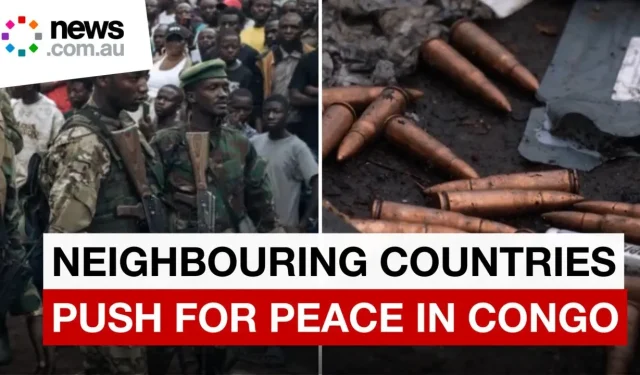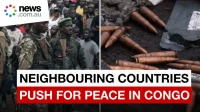On March 25, violence erupted in eastern Democratic Republic of Congo (DRC), where Rwandan-backed M23 rebels engaged in fierce confrontations with militiamen allied to the Congolese government. This conflict has heightened tensions in a region already enmeshed in a protracted struggle for stability, as neighboring countries seek to rekindle peace initiatives that have faltered in recent months.
Background on the M23 Rebel Group
The M23, or March 23 Movement, is a rebel group that emerged from a prior uprising in 2012, which was rooted in ethnic tensions and grievances against the DRC government. Over the years, the group has been accused of receiving support from Rwanda, a claim that Rwanda continues to deny. The continued presence and actions of the M23 rebel group have posed significant challenges to peace and security in eastern Congo, where such conflicts are often fueled by a mix of local grievances and regional dynamics.
Regional Efforts to Reignite Peace Talks
In response to the escalating violence, neighboring countries have ramped up efforts to reinitiate peace discussions between the Congolese government and the M23 rebels. Various diplomatic channels are being leveraged, reflecting a concerted regional push to stabilize eastern Congo amidst the ongoing military clashes. Concerns persist that without effective mediation, the conflict could spiral further out of control, resulting in increased refugee flows and deepened humanitarian crises.
Potential Impacts of Renewed Conflict
The resurgence of violence poses numerous risks not only for the DRC but also for the wider region. Key concerns include:
- Humanitarian Impact: Ongoing fighting could exacerbate an already dire humanitarian situation, making it difficult for aid organizations to deliver essential services to affected populations.
- Regional Security: The instability may spill over borders, affecting neighboring nations like Uganda and Rwanda, which have historically been intertwined in Congolese conflicts.
- Economic Consequences: Continued unrest can deter foreign investment in the DRC, affecting mining sectors critical for global supply chains, particularly for minerals like coltan and gold.
Concluding Thoughts
The current military engagements between M23 rebels and government-allied forces underscore a critical juncture in the DRC’s ongoing struggle for peace and stability. As regional stakeholders intensify their diplomatic efforts, the need for sustained commitment to a viable peace process becomes evident. The international community’s engagement and support will be crucial in fostering a long-term resolution to the conflict, which has persisted for decades.


